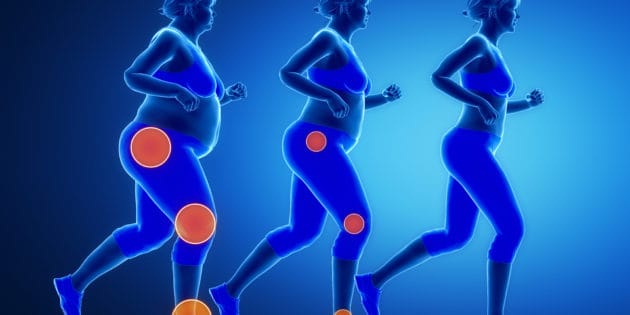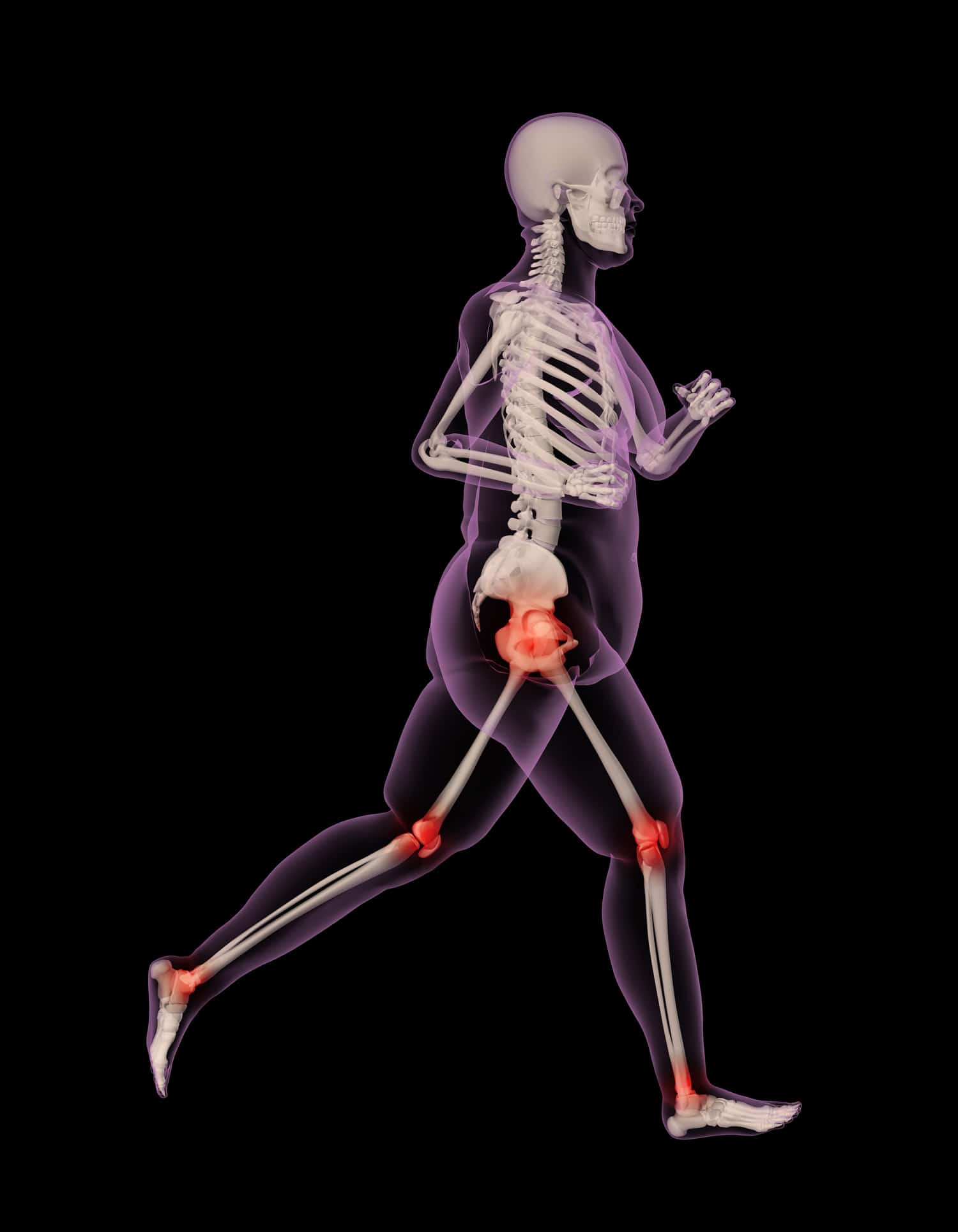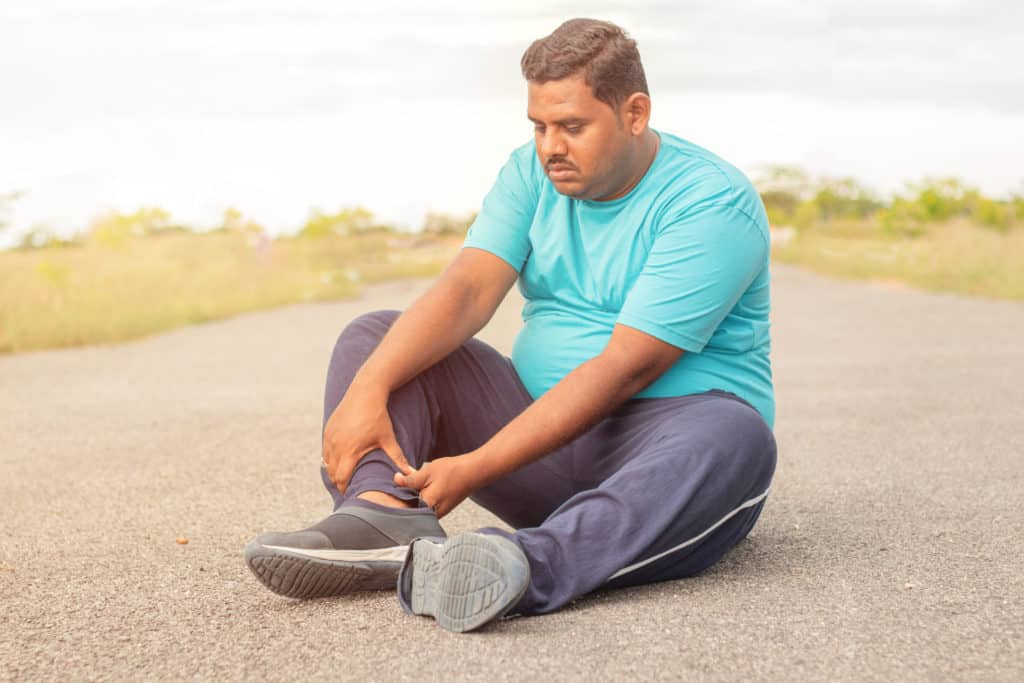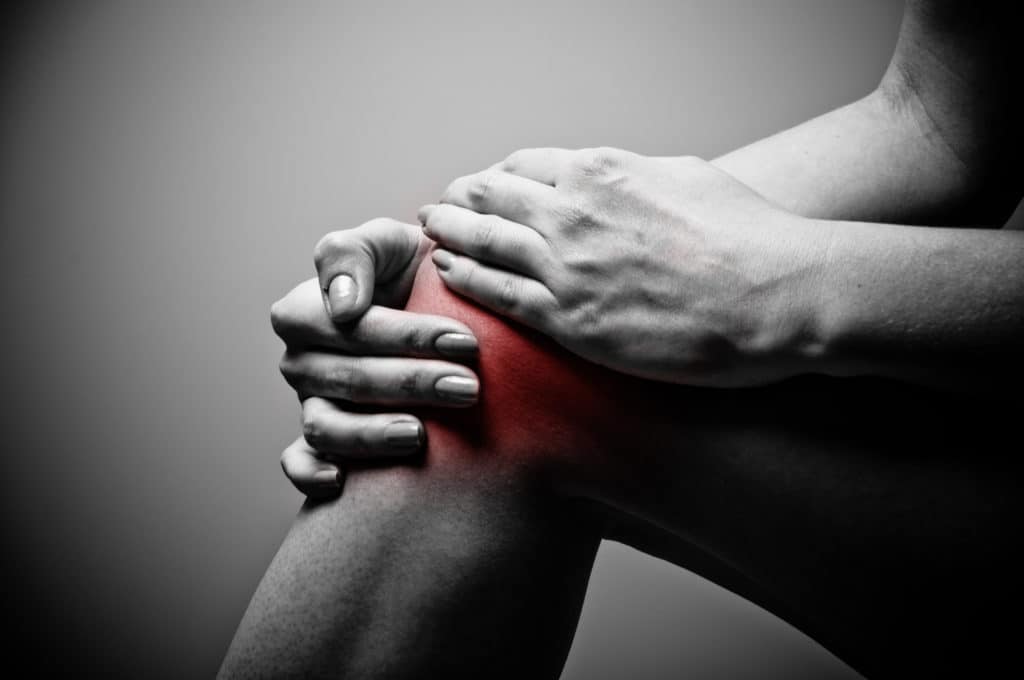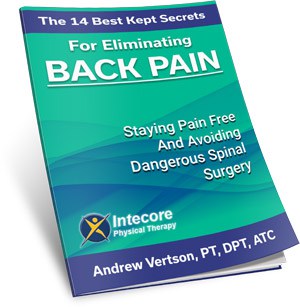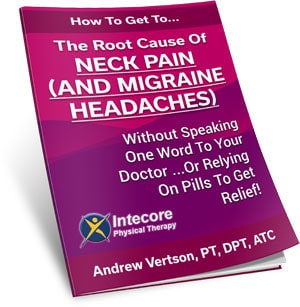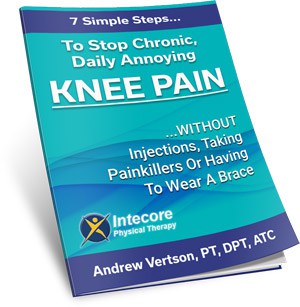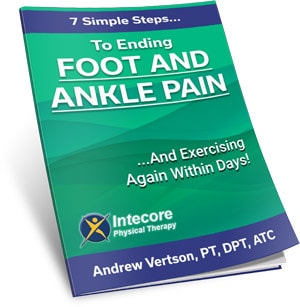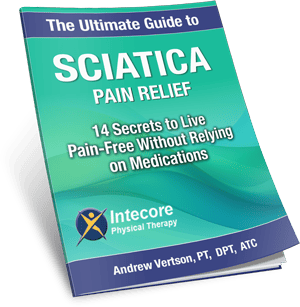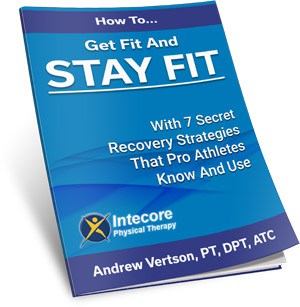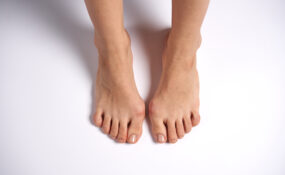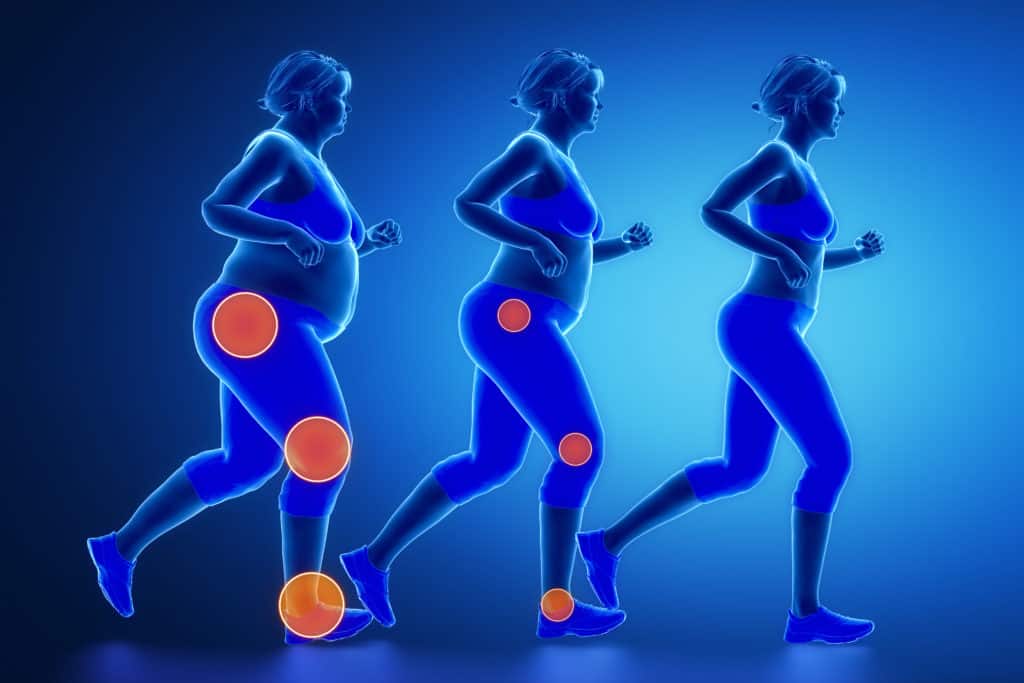
Are you worried about your joints?
Unfortunately, most people don’t start worrying about their joints, or take steps to protect them, until the pain begins. However, to live a healthy, active life – long into retirement and old age – where hiking, dancing, or playing soccer with your grandkids remain order of the day, we need healthy, pain-free joints.
Our joints are incredible structures that we need to look after. They act like hidden hinges underneath our skin made of connective tissues, cartilage, and bones that lock together. Over time, these intricate mechanisms that hold our skeleton together (while keeping us mobile) wear down.
The harder your joints work, the faster that will happen.
As we get older, joint pain and other ailments become more common. Diseases of the third age – like osteoarthritis and degenerative joint disease, as it’s sometimes called – are usually associated with age-related wear and tear. But age isn’t the only factor – you’re much more likely to suffer from joint pain, and the pain will be much worse, if you’re overweight or obese.
Still, you’re young. You have lots of time to worry about that stuff. Right?
Wrong.
Suppose you’ve been carrying excess weight around for years. In that case, weight-related joint pain may start well before your golden years – sometimes as early as your late thirties, forties or fifties. This is no age at all. You certainly don’t want your joints to start degenerating or reduce your mobility at this age. That’s for sure.
According to the CDC, 2 out of 3 adults with arthritis are overweight – with 50% of these patients experiencing joint pain classed as severe.
But even without arthritis, many painful conditions cause severe pain and reduced mobility associated with excess weight – with some resulting in painful surgery or life-changing injury.
The most important thing to remember is that prevention is better than cure.
If you’re starting to feel niggles of pain or inflammation in your joints and you’re carrying a bit more weight than you would like, don’t wait. Now is the time to take action – before it turns into severe arthritis or other degenerative joint problems.
So, what can you do?
Without question, excess weight has a detrimental impact on joints. We know this. It’s one of those things we try and push to the back of our minds, right? But when you understand the damage excess weight does to your joints, it’s harder to ignore. Sometimes, it’s the catalyst you need to take action – instead of putting it off.
In this blog, we explain why weight matters when it comes to joint pain and what you can do to prevent and treat joint pain caused by excess weight.
How Weight Affects Your Joints
Our joints work extremely hard to keep us moving, bending, rotating, and pivoting during the course of our lives. They start to show signs of wear and tear eventually, but nothing is set in stone. We’ve all seen the stories of men and women doing mind-bending yoga poses at 90 and running marathons, and competing at a level way below their biological ages.
So, it’s up to you. Do you want to slow down or speed up the process of aging joints?
When your joints take extra pressure – regularly, from excess weight – they become overworked. Imagine a car that does 100,000 kilometers per year across the desert with five passengers versus 10,000 per year around DC.
Add to that the resistance that things like hills, stairs, or carrying shopping add, and it is easy to see how hard these joints are working daily.
Every time we move, our joints carry at least 1 1/2 times our body weight, and that’s on a stable flat surface. If you’re 10lbs overweight, your knees are subjected to between 30-60lbs of excess force every time you move. You can do the math if you’re 50, 100, or 200+lbs overweight, but your knees are taking way more pressure than if you were at a healthy weight. That’s a given.
Yet, the extra pressure isn’t the only problem when it comes to joint pain. Obesity and being overweight causes inflammation in and around the joint – as your body fights the excess fat, combined with a poor diet and too many calories. This inflammation then makes the pain worse, fluid mobility more complicated, and it pushes an active lifestyle even further out of your reach. It’s a vicious circle.
It’s a lot to ask of our bodies, day after day.
Some of our joints carry out more movements than others, making them more vulnerable to damage. For example, think about how much you use your knees, fingers, and lower back daily.
The constant pressure can push certain joints, such as your pelvis or spinal discs, out of line and interfere with the natural curve of your spine. So, if you carry extra weight around your middle, developing lower back pain and other back problems are common. So many parts of the body are adversely affected by excess weight, which means you’re also more prone to injury. So, your joint pain could be down to a variety of different factors.
When you have pain and twinges in your joints, they are indicators that something is wrong. Still, it may be due to this chronic inflammatory process – caused by weight – not an injury or arthritis in the joint. But this is why it’s a good idea to get checked over by a Physical Therapist who can identify the underlying cause of your pain and give you advice on what to do about it.
How To Reduce The Impact Of Weight On Joint Pain
The good news is, even losing small amounts of weight can reduce the stress on your joints, helping ease pain and decrease the likelihood of joint problems in the future.
Research shows losing just 11 pounds can lower your chances of developing osteoarthritis by as much as 50%.
If you do want to lose weight, it is essential to embark upon this change in a structured way. If you haven’t been exercising regularly, your muscles will be out of practice, and you could have structural damage to your skeleton.
Therefore, it is crucial to seek medical advice from a trained professional, such as a doctor or a physical therapist. A qualified professional can give your body a full assessment then suggest a tailored weight loss program that will suit your needs.
You will need to do more than make healthier choices to lose weight. You will have to consume fewer calories while burning more calories to see the weight fall off. That means you will need to move more and eat differently.
A trained professional can help you look at your diet and set out achievable and effective exercise programs.
Now you understand the extent to which weight gain can affect your joints. You have solid motivation to embark on weight loss plan and stick to it.
Your joints are worth it, aren’t they?
Knowing that every ounce you lose takes you one step further from joint pain, surgery or further damage should inspire you to reach your weight loss goals.
Are You in Pain Now?
If the answer is yes, we’re here to help you. You don’t have to suffer – and there’s no judgment here. We understand that if you have joint pain now, it’s challenging to take the necessary steps to lose weight. You can’t increase your daily activity and “burn more calories than you take in” when you can’t put weight through your joints.
Pain can make you feel down and depressed, too, and more likely to reach for super-processed, calorific comfort food – like chocolate, chips, and pizza, instead of lean protein, fruit, vegetables, and good fats. Hence, it’s even harder to lose weight.
That’s why it’s essential to seek help to get back on your feet.
We always recommend slow, sensible weight loss – no fad diets. But with determination and the correct type of support from one of our physical therapists, you can transform your life quite quickly. Improve your joints’ health and stay fit, flexible, and healthy for many years to come. But first, we aim to get you out of immediate pain. Assess what’s causing your problems and help you get back to an active lifestyle as quickly as possible, so you can begin losing weight and reduce the pressure on your joints.
Before you book a treatment session, you can talk to one of our qualified Physical Therapists on the telephone to find out how we help people, just like you, with joint pain. We’ll talk through your specific problems and offer some immediate advice that you use now to get out of pain fast, too.
We also offer a free 30-minute Discovery Session to all patients who are interested in booking treatment. Come into the clinic, see our facilities and meet your physical therapist in person. Either way, it’s complimentary – whether you choose to chat to us on the phone or come in for a taster session. You can find more information on our contact page. We look forward to hearing from you!
- 7 Ways to Get Rid of Tension Headaches Naturally - July 1, 2025
- Why Are My Feet Swollen? Common Causes Explained - June 2, 2025
- What Is Restless Leg Syndrome? Symptoms, Causes, and Relief Options - May 5, 2025

